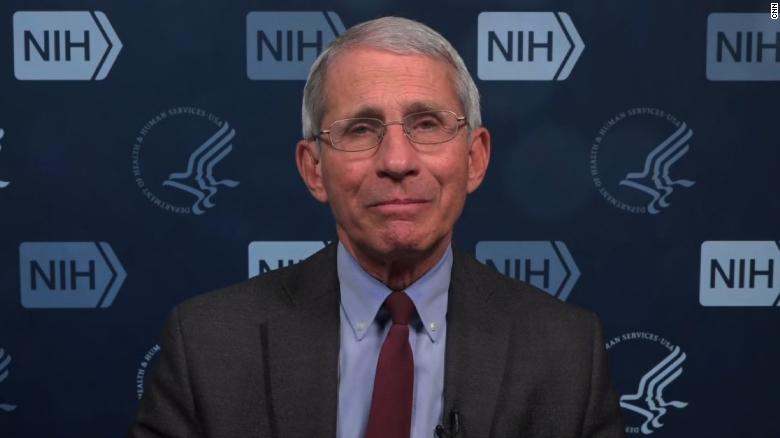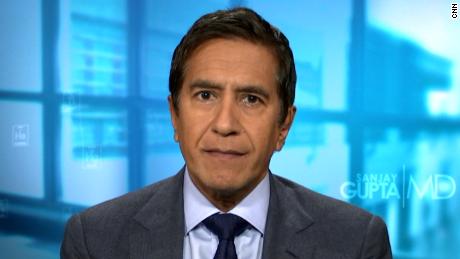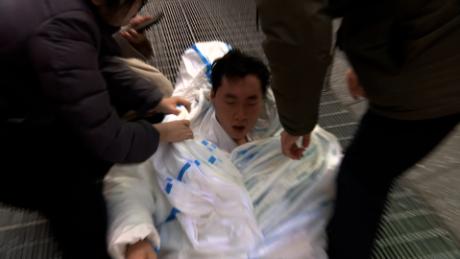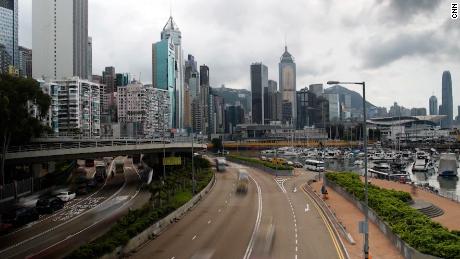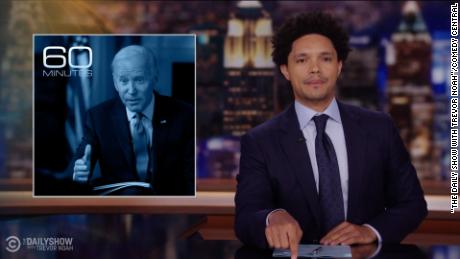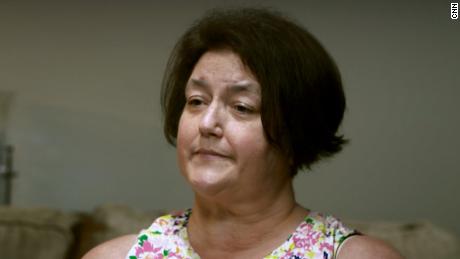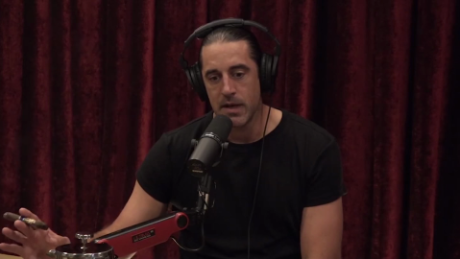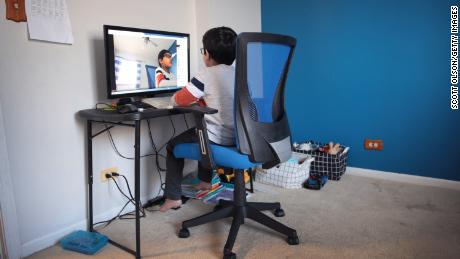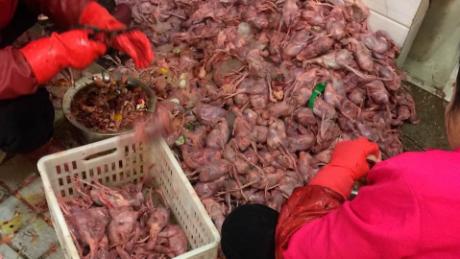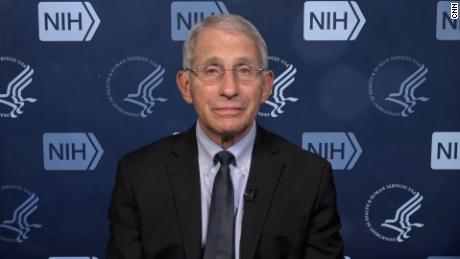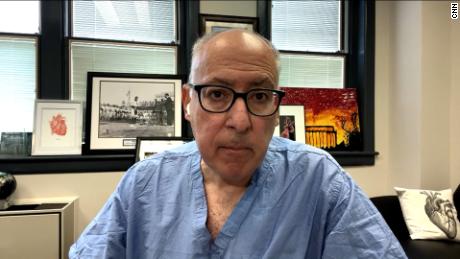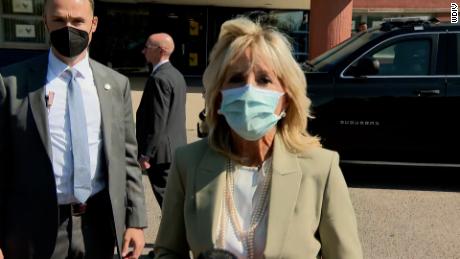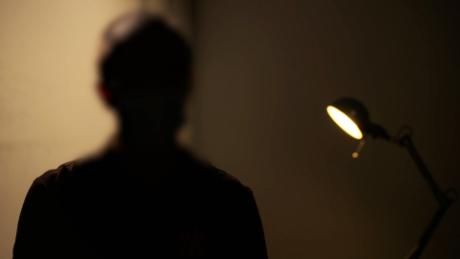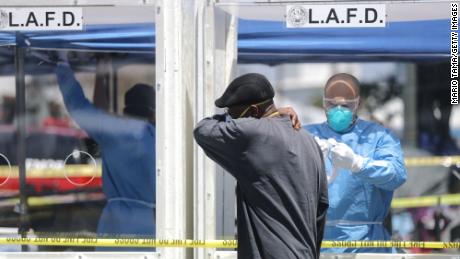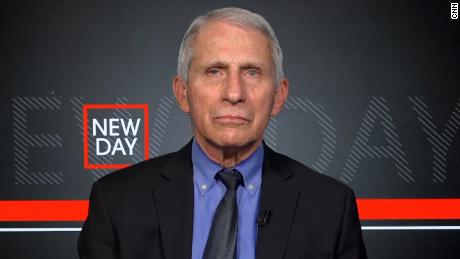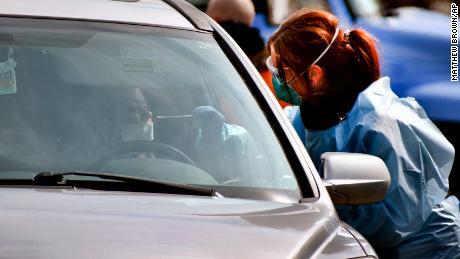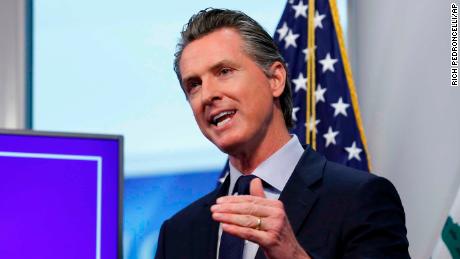(CNN)A second round of the coronavirus is "inevitable," the nation's top infectious disease doctor says, but just how bad it is will depend on the progress the US makes in the coming months.
"If by that time we have put into place all of the countermeasures that you need to address this, we should do reasonably well," Dr. Anthony Fauci said. "If we don't do that successfully, we could be in for a bad fall and a bad winter."
If states begin lifting restrictions too early, Fauci says he predicts the country could see a rebound of the virus that would "get us right back in the same boat that we were a few weeks ago," adding that the country could see many more deaths than are currently predicted.
So far, more than 1 million Americans have been infected and at least 60,876 have died. A leading model predicts more than 72,000 people will die in the US by early August.
The sobering numbers come as some states move to reopen despite warnings from federal health officials.
Being able to test for the virus, track cases and isolate every infected American will be key factors in ensuring that second wave isn't as deadly, Fauci says.
The US continues to lag behind in testing, according to a new report by the Organization for Economic Cooperation and Development. The nation has performed 16.4 tests per 1,000 people, according to the report. Spain and Italy, with the second and third highest number of cases after the US, have conducted 22.3 and 29.7 tests per 1,000 people respectively.
Fauci says the federal government needs to provide strategic guidance and assistance to help states up their number of conducted tests. He hopes he can guarantee everyone who needs a test can get one by the end of May or early June.
"The truth is that we're going in the right direction," he said. "But we need to continue to partner in a very active collaborative way with the states, we need to help them the same way they need to do the execution."
Some hopeful news in the pandemic emerged from a study on whether remdesivir could be used to treat Covid-19.
Gilead Sciences, the maker of the investigational drug, said Wednesday it is "aware of positive data emerging from the National Institute of Allergy and Infectious Diseases' (NIAID) study of the investigational antiviral remdesivir for the treatment of COVID-19."
Fauci, speaking alongside President Donald Trump at the White House, expressed optimism about the remdesivir trial, saying it showed the mortality rate trended "towards being better" among patients who took the drug.
The data showed remdesivir has a "clear-cut, significant, positive effect in diminishing the time to recovery," Fauci said.
The executive director of the World Health Organization's health emergencies program, Dr. Mike Ryan, said it's too early to comment on the trial results.
How reopenings will affect virus numbers
In Georgia, where Gov. Brian Kemp began lifting restrictions on small businesses such as salons and bowling alleys last week, experts say the death toll will likely see a sharp rise as a result.
"There are a couple of conditions that really need to be met before you can safely lift social distancing restrictions," CNN Medical Analyst Dr. Celine Gounder said Tuesday.
Those factors include a 14-day decline of cases and deaths, a hospital capacity for expected patients and the ability to do contact tracing and testing, she said.
"Georgia doesn't meet any of the criteria," Gounder added.
Youyang Gu, the researcher behind one of the models shared by the US Centers of Disease Control and Prevention, projects the number of daily deaths in the state will nearly double by early August.
The model assumes social distancing will relax slightly as the state continues to reopen. The number of deaths per day in Georgia will jump from 32 fatalities on May 1 to a projected 63 people dying each day by August 4, the model forecasts.
The researcher's findings fall in line with what's predicted by another model that's often been cited by the White House.
Dr. Chris Murray, director of the University of Washington's Institute for Health Metrics and Evaluation, said they've upped their August death toll for the US by about 7,000 since last week.
The change, Murray says, comes from both longer peaks experienced by states and signs that states are becoming more active again.
Some businesses in South Carolina, Alaska and Oklahoma reopened last week. Restaurants in Tennessee opened with restrictions this week while retails outlets will open at 50% capacity Wednesday.
Texas Gov. Greg Abbott announced all retail stores, restaurants, movie theaters, malls, museums, and libraries will be allowed to reopen Friday but must remain at 25% capacity.
In North Carolina, officials in Gaston County defied a statewide stay-at-home order by reopening in phases starting Wednesday. County commissioner Tracy Philbeck said via Twitter that his executive order will allow business and churches to reopen.
"Staying home is not a solution," he said. "We can protect health and we can work at the same time."
Gov. Roy Cooper last week extended the state's stay-at-home order until May 8.
Cooper, in a statement, said the county's decision will "create confusion during a public health emergency, which is dangerous."
"The Gaston County order itself says that the statewide Stay At Home order remains in effect, and state leaders urge people to continue following it," the statement said.
Iowa Gov. Kim Reynolds also took steps to reopen business, even as the state recorded 12 new Covid-19 deaths.
Reynolds announced some churches and farmers markets will reopen Monday, and elective surgeries would resume.
Reynolds said it "makes sense to loosen up in areas that have seen little to no virus activity. " Thd decision came despite a University of Iowa study that recommended maintaining mitigation efforts another two weeks to prevent a second wave of infections.
"It's not sustainable for us to continue to lock the state down," Reynolds said.
Airlines will provide masks
Since officials have now recommended Americans wear face masks in public to prevent further spread, some airlines say they'll provide the masks for passengers.
American Airlines and United Airlines both said they'll be providing masks for passengers beginning in May.
"We are not mandating that passengers wear a mask however we strongly encourage travelers follow CDC guidance to wear a face covering when social distancing is difficult," United Airlines spokesperson Nicole Carriere told CNN. "By providing the masks, we're making it that much easier for them to do so."
Meanwhile, in three major New York City area airports, terminal access will be restricted to ticketed passengers, airport employees and others who need to enter the airport for business, the Port Authority of New York and New Jersey announced Tuesday.
The measure will be enforced at John F. Kennedy Airport, LaGuardia Airport and Newark Liberty Airport.
"Due to Covid-19 related shifts in flight and passenger activity, changes in the airports' operational footprints, security, cleaning and maintenance protocols, and social distancing directives, the Port Authority will temporarily limit terminal access at the region's three major airports," the Port Authority said in a statement.
CORRECTION: This story has been updated to correct the description of Anthony Fauci's medical expertise.
